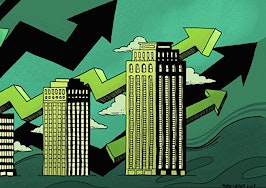It’s been on your mind for more than a while. Your job is stable, the housing market is looking up and a friend has started renting on Airbnb and can’t stop raving about the extra income. Could you, too, afford an investment rental property? Do you have the credit history and the income to go from homeowner to real estate investor by this time next year?
The short answer is that, even if you don’t make more than six figures, you can still finance an investment property — one that you can either rent out yourself or hand over to a management company to do the heavy lifting for you. But an investment of any kind takes planning, dedication and some top-notch money management. Here are some tips for financing that dream rental or other type of investment property like a pro.

Matthew Frankel
“Investment properties represent a higher risk to lenders – after all, in tough times, buyers will stop making payments on their investment properties before the home they live in,” Matthew Frankel, CFP, senior analyst for Millionacres, a real estate investing brand by The Motley Fool, told Inman. “The best way to mitigate the interest rate difference is to work on your credit score, build up your reserves, and generally make yourself the most attractive borrower as possible.”
Start Saving:
Investment loans are a much higher risk than one’s primary house — as a result, lenders usually require higher down payments and give higher interest rates. While this shouldn’t scare you off from wanting to invest, financial analyst Todd Huettner advises improving your credit score and having at least 20 percent of the property price (30 percent is, naturally, better) saved for a down payment. And that’s just the beginning. You also need to have enough saved for periods of no rentals, current and future repairs, long-term maintenance, and other unexpected problems.
It is going to be pricey, but if owning an investment property is your dream, make a tight budget and put aside a set amount of money each month to have a lump sum that slowly increases over time.
“My advice is to be able to cover your regular bills and the monthly cost of the new home for 12 months from additional savings beyond emergency savings to put yourself in the best position to buy your first rental home,” Huettner told Inman.
Conventional vs. Unconventional Financing:
Pure scrimping is not likely to get you to where you need to be all on its own. You also need to consider various loan options. A conventional loan — a fixed interest rate mortgage from a bank or other lender — is great but may be harder to obtain when you’re thinking investment properties. Frankel advises looking among asset-based lenders or finding an investor who is also looking to make money from real estate. These types of lenders look at the property’s potential and your likelihood of paying the loan back rather than your income.
“They won’t consider your personal income, and only base your approval on your credit and the cash flow of the investment property,” he said. “The drawback is that these loans typically have significantly higher interest rates than comparable conventional loans.”

Todd Huettner
Think And Plan In Terms Of The Future:
Investment properties are, at the core, a way of forward thinking — you’re putting money into what you believe will bring you more value further down the road. And to guess in an educated way, you need to consider a multitude of factors. How much income and savings do you have? How much debt do you have? Where do you want to buy a rental property? How much will you be able to charge for rent? Do you want to be a landlord or just sit back and watch the income come in? Huettner advises looking not only at your current income-to-debt ratio but also analyzing how much the property is expected to bring in based on things such as market predictions and current scans of rentals in the area.
“It comes down to down payment, reserve assets, and debt relative to income and the cost of the property including mortgage, taxes, insurance, HOA,” he said.
Consider Pulling Money Out Of An Existing Property:
If you own your main home, you may want to consider pulling cash out of that to use for a rental. According to Huettner, that will be a way to get the property you want quickly. You’ll be able to put down a higher down payment or, depending on how much you can pull out, will not have to struggle to get approved for a loan with not-so-great conditions. But naturally, this strategy comes with its own share of risks and problems — make sure to reread the conditions of your current mortgage and carefully evaluate how much the second property is expected to bring in versus the percent you’ll have to pay by increasing your mortgage.
“[Another option is to] turn your current residence into a rental and go buy a new home where you can put down as little as 5 percent,” said Huettner.
Expect The Unexpected:
But surprises, both good and bad, will come even after you’ve laid out all your finances, looked at market conditions and evaluated risk-to-return ratios. Getting approved will take longer. Closing will take longer. Tenants may not come in right away. The property’s expenses may keep you from seeing real returns even after you’ve started renting. All investments come with a certain degree of risk and uncertainty — that’s when the financial safety net becomes particularly helpful.
“If you aren’t a high earner, it becomes more important to be fully prepared for any unforeseen expenses before buying,” said Frankel. “In other words, you not only need to have a down payment, but I’d also suggest having at least six months of expenses, including mortgage payments, in reserve.”













